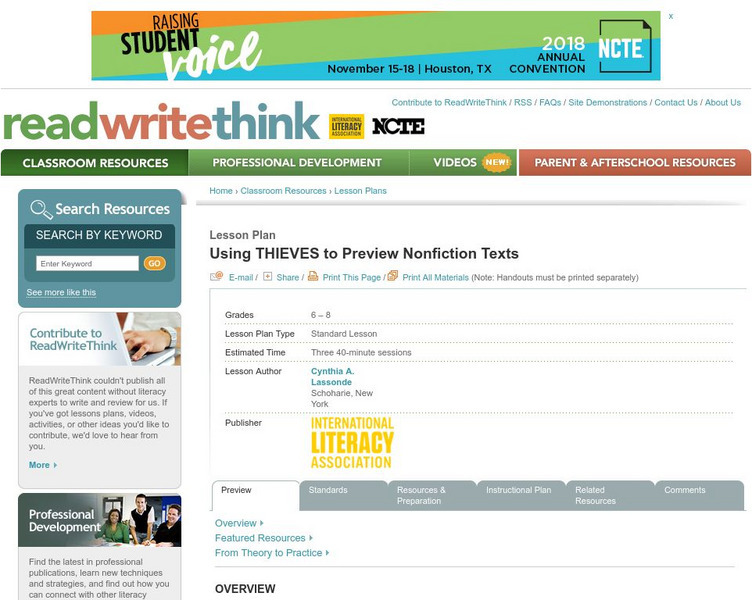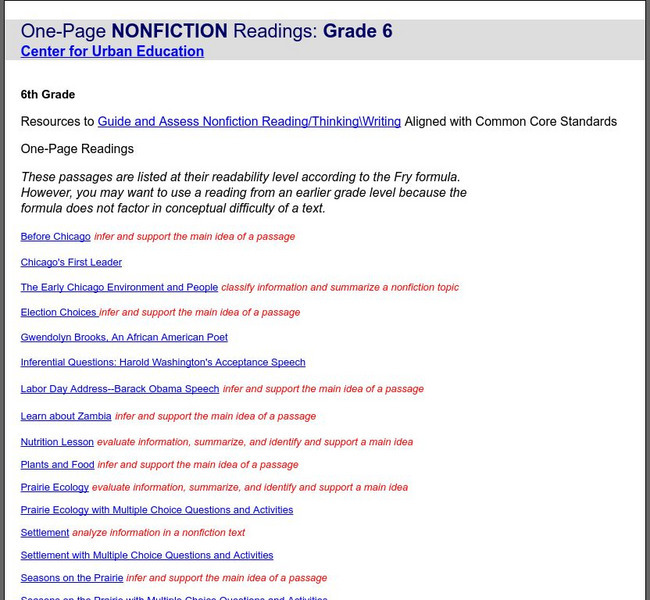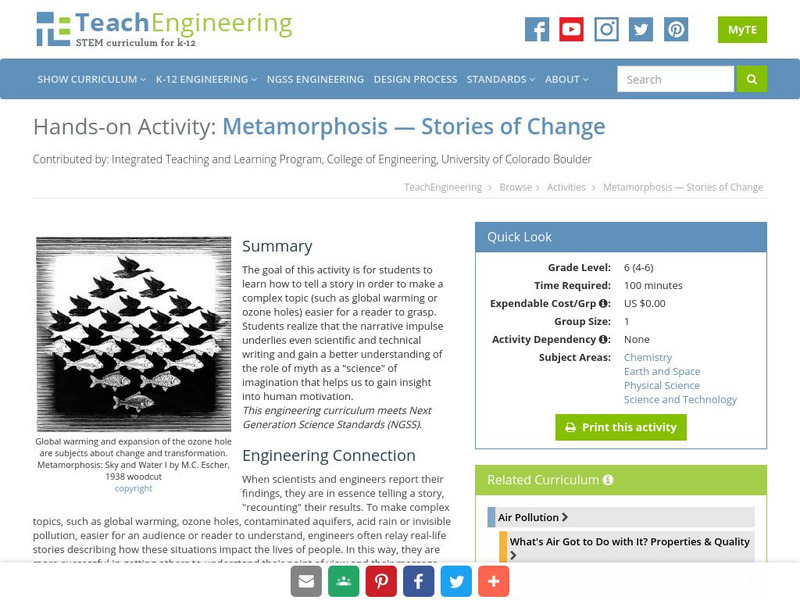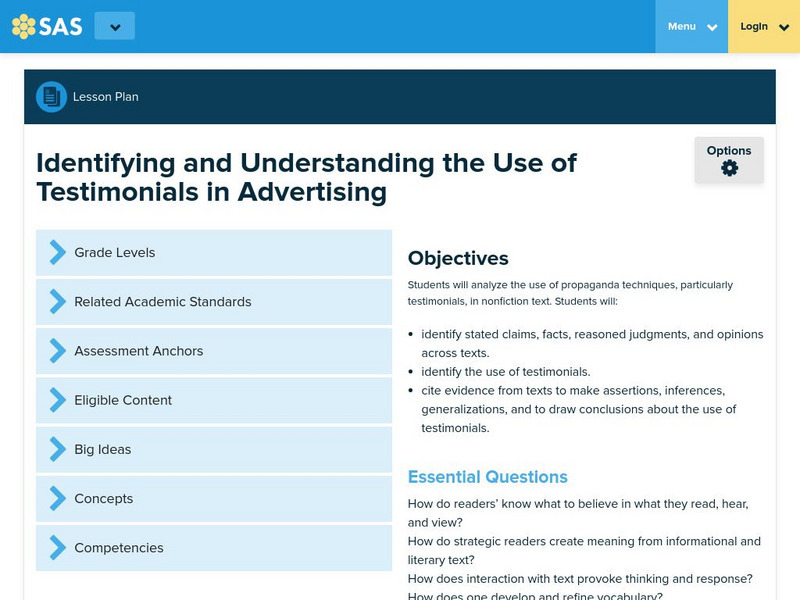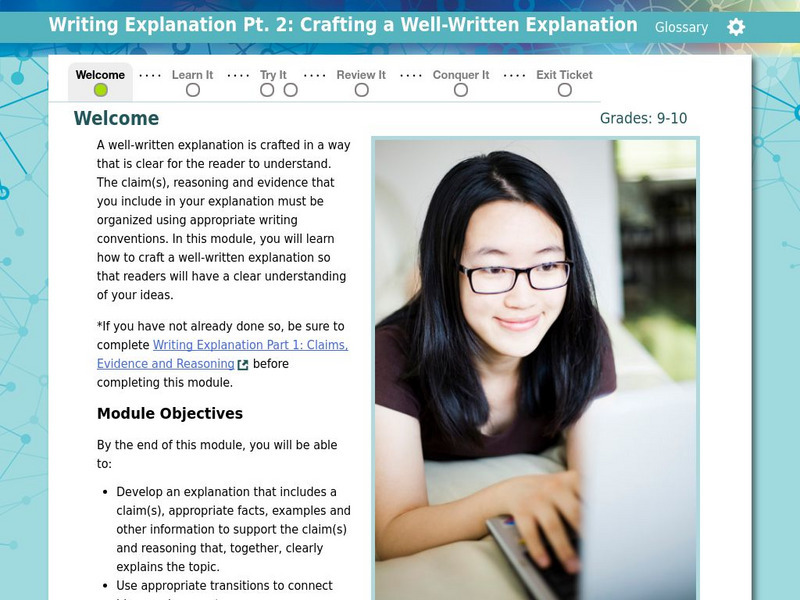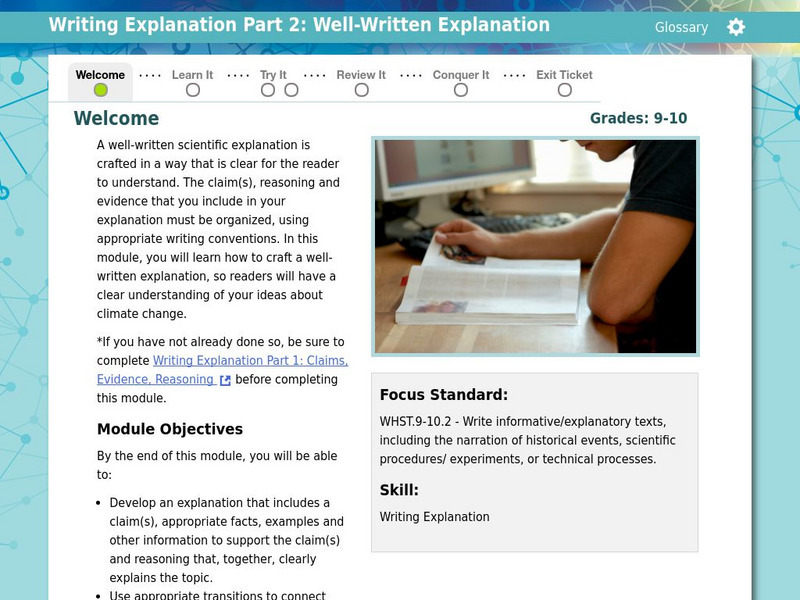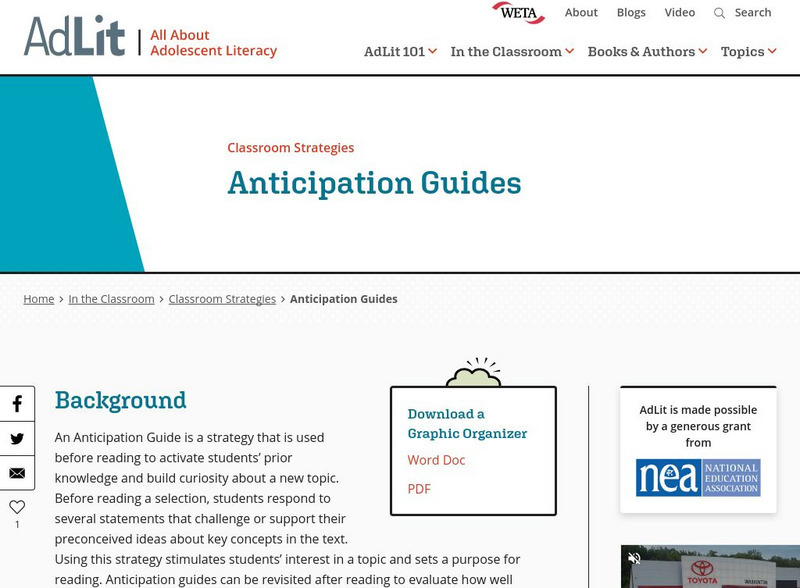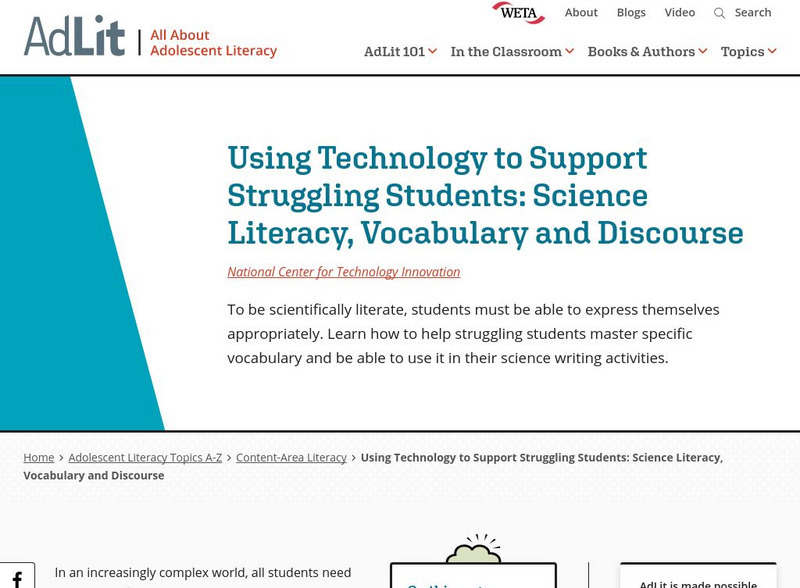Institute of Electrical and Electronics Engineers
Can You Canoe?
A neat handout immerses learners in the history of canoe making. After reading, small groups of mini engineers work to craft a canoe that will not be immersed! This is an ideal exercise in engineering design for your STEM curriculum or...
Institute of Electrical and Electronics Engineers
Fun with Speedboats!
After reading about marine engineers and naval architects, it's all hands on deck to design and test a speed boat. This lesson is designed for the Next Generation Science Standards in engineering and can be a centerpiece for a STEM...
Institute of Electrical and Electronics Engineers
Waterproof that Roof!
Stop the raindrops from getting into the house! Eager engineers learn about roofing history and waterproofing by nanotechnology. They get into groups and work on designing a waterproof roof for a small model house. The accompanying...
Texas State Energy Conservation Office
Power Systems & Efficiency
Are you looking for a reading resource about the efficiency of power systems? Here is one that introduces the output/input ratio, measurement of energy by joules or calories, and efficiency ratings. For STEM classes that are learning...
Compassion in World Farming Trust
Selective Breeding of Farm Animals
Biology learners read about selective breeding in chickens and how it has produced high-yield meat specimens and rapid egg-layers. The unpleasant effects of artificial selection are explored, as well as options to supporting this...
Curated OER
The Global Precipitation Measurement Mission (GPM) Lesson
Introduce your class to one of the ways that technology is benefiting humanity. The Global Precipitation Measurement Mission involves the data collected by nine satellites from different countries with a united focus on studying world...
Polk Brothers Foundation Center for Urban Education at DePaul University
De Paul University: Center for Urban Education: History Thinker: Analyze Then Summarize [Pdf]
This Center for Urban Education resource provides a downloadable worksheet. Students will read about a historical event and answer scaffolded questions that will help them retell what happened, explain the causes and effects, and then...
ReadWriteThink
Read Write Think: Using Thieves to Preview Nonfiction Texts
Contains plans for three lessons that introduce a nonfiction prereading strategy with the acronym THIEVES, which stands for Title, Headings, Introduction, Every first sentence, Visuals and vocabulary, End Questions, and Summary. In...
ReadWriteThink
Read Write Think: Playing With Genre Through Newspapers and Short Stories
Contains plans for three lessons that ask students to compare narrative writing (short stories) to expository writing (news articles) in order to understand what makes each genre unique. In addition to objectives and standards, this...
Polk Brothers Foundation Center for Urban Education at DePaul University
De Paul University: Center for Urban Education: One Page Nonfiction Readings: Grade 6
This site contains 17 nonfiction articles that are appropriate for students with a 6th grade reading level, as measured by the Fry Formula. Questions for each passage are provided. Graphic organizers are available for these copyrighted...
TeachEngineering
Teach Engineering: Metamorphosis Stories of Change
The goal of this activity is for students to learn how to tell a story in order to make a complex topic (such as global warming or ozone holes) easier for a reader to grasp. Students realize that the narrative impulse underlies even...
Other
Pde: Sas: Identifying and Understanding Use of Testimonials in Advertising
In this lesson, 8th graders analyze and compare the propaganda techniques used in informational texts, with a particular focus on the use of testimonials. Includes links to recommended resources, scaffolding suggestions, and an...
Polk Brothers Foundation Center for Urban Education at DePaul University
De Paul University: Center for Urban Education: Comprehensive Assessment: Nonfiction [Pdf]
Questions are provided to help students determine the main idea, topic, purpose, and opinion of a piece of nonfiction. Students are prompted to write a summary of the informational text.
Texas Education Agency
Texas Gateway: Synthesize Ideas in Informational/expository Text
[Accessible by TX Educators. Free Registration/Login Required] Learn how to synthesize and make logical connections between ideas within a text and across two or three texts representing similar or different genres and support with...
CommonLit
Common Lit: Where Did I Come From
CommonLit.org is a wonderful resource to use in a Language Arts classroom. Each story or article is accompanied by guided reading questions, assessment questions, and discussion questions. In addition, students can click on words to see...
Thinkport Education
Thinkport: Writing Explanation Pt. 2: Crafting a Well Written Explanation
In this module, students will write an explanation about climate change based on the claims, evidence and reasoning they identified in the Writing Explanation Part 1: Claims, Evidence and Reasoning.
Thinkport Education
Thinkport: Writing Explanation Part 2: Well Written Explanation
In this module, students will write an explanation based on the claims, evidence and reasoning about climate change that they identified in Writing Explanation Part 1: Claims, Evidence, Reasoning.
Thinkport Education
Thinkport: Writing Explanation Part 1: Claims, Evidence and Reasoning
In this module, students will explore how claims, evidence and reasoning are used to write an effective explanation. Students will read an article that addresses the question of whether climate change is now confirmed after record high...
AdLit
Ad lit.org: Classroom Strategies: Anticipation Guides
An Anticipation Guide is a strategy that is used before reading to activate students' prior knowledge and build curiosity about a new topic. Before reading a selection, students respond to several statements that challenge or support...
AdLit
Ad lit.org: Classroom Strategies: Inferential Reading
Teaching students to "read influentially" helps them learn how to read more strategically. This technique is derived from the teaching model that learners develop knowledge via the process of interpreting new information in light of past...
AdLit
Ad lit.org: Using Technology to Support Struggling Students: Vocabulary
To be scientifically literate, students must be able to express themselves appropriately. Learn how to help struggling students master specific vocabulary and be able to use it in their science writing activities.
AdLit
Ad lit.org: Content Area Literacy: Science
The demands of comprehending scientific text are discipline specific and are best learned by supporting students in learning how to read a wide range of scientific genres. Besides text structures emphasizing cause and effect, sequencing...
AdLit
Ad lit.org: Extended Writing to Learn Strategies
Writing enables students to process, organize, formulate, and extend their thinking about what they have been learning. In addition, teachers can also assign writing to help students evaluate what they know and understand about a topic....
AdLit
Ad lit.org: A Summary of "Writing Next"
What does research tell us about effective teaching techniques to help adolescents develop their writing skills? This article summarizes Writing Next, a 2007 study of adolescent writing instruction.






![De Paul University: Center for Urban Education: History Thinker: Analyze Then Summarize [Pdf] Unknown Type De Paul University: Center for Urban Education: History Thinker: Analyze Then Summarize [Pdf] Unknown Type](https://d15y2dacu3jp90.cloudfront.net/images/attachment_defaults/resource/large/FPO-knovation.png)
